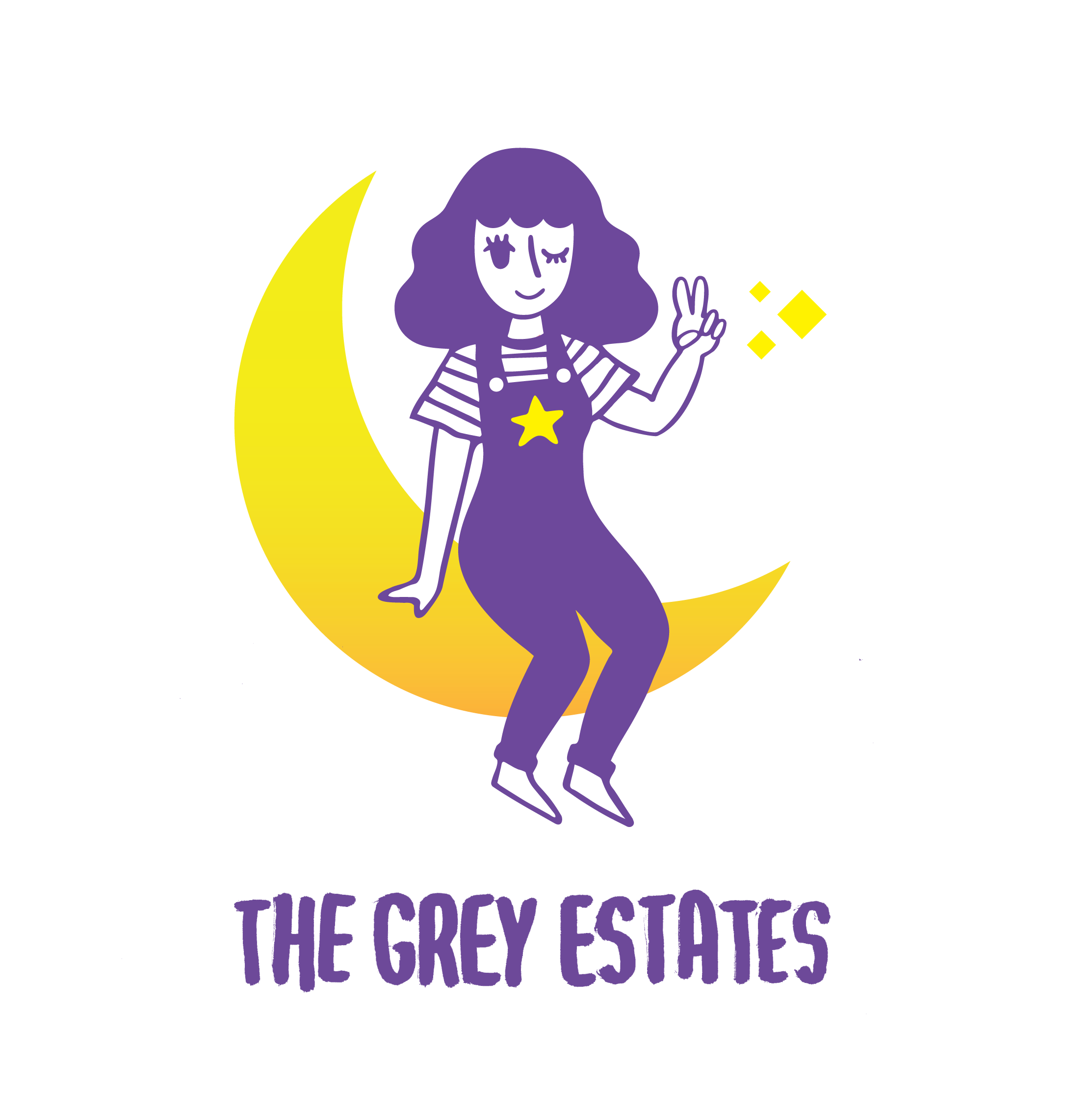interview: bonny doon
In March, bonny doon released a self-titled full length that might be one of the most honest, moving pieces of music this year. The 11-track release is like peeking out the passenger side window, watching America fly by, and listening intently to your friend's every struggle, heartache and victory. It's beautiful and the band was kind enough to answer a few of our questions about the record and more.
photo: Lola Gibson-Berg
The Grey Estates: So much of this record feels really personal and telling. For your songwriting did you draw inspiration from events that happened to you and if so how were you able to relive those moments and does it feel daunting to then share them with the world? When you collaborate as songwriters how do you incorporate such personal ideas into multiple person tracks (if that question makes sense?)
Bobby: Yeah, it can feel a little vulnerable, especially since our vocals are unaffected and our music is quiet-ish, it makes every word decipherable. Bill and I are really close and have gotten to the point where we even write for each other sometimes, so even though we have different voices and writing styles, we both have a really developed sense of the other’s voice and its personality. It helps us give and receive feedback really well.
I wanted to ask you about a couple tracks in particular. First being, "Lost My Way." I feel like it's the perfect jam for when you feel totally confused about everything. So what inspired that track and how did you incorporate some instrumentals into it that perfectly echo that same feeling of confusion.
Bill: It's a song about trying to find balance. It was written in a chaotic time of change for me. We were listening to a lot of Australian punk and krautrock when we started playing that song and both of those probably come through in the arrangement.
Evening All Day Long is also super beautiful and one of my favorites. Where did that story come from and how were you able to look back on the loss of someone or someone's moving away and find a song from it?
Bobby: That song is about my former partner moving away and kind of strangely enjoying not moving on, inhabiting the same psychic life. I feel like stuff like that, involving loss or confusion, is pretty easy to write about. It’s a lot harder to write a happy song.
How did the band first form and how was your songwriting, music process changed since you first formed and then recorded the album? It's been over a multiple year period, so is there anything you've learned?
Bill: Everything on this album is from our first batch of songs from our first year as a band. The band initially was conceptualized around me being the only singer. Bobby and I were helping each other work on our own stuff, but it was kept separate. Bonny Doon came out of my songs that he was helping me with. I was helping him work on his own record too but as Bonny Doon became more involved, he abandoned that and I encouraged him to write for Bonny Doon. He started doing that and the lines sort of blurred. It helped us take things further to stop thinking of them as mine or his, they just became ours. We write a lot more on the spot now, as a band. We sometimes go on retreats where we’ll rent out a place in the country and just play all day and record everything on a tape machine. That's how we wrote our second record which we are working on now.
What's Detroit like for you and did your hometown provide any inspiration?
Bobby: We all grew up in or around Detroit so we have a really deep community here that we are grateful for. So maybe support and nurturing is primarily what Detroit has given us. Inspiration too, but it probably inspires equal parts wonder and critique.
Is there a perfect spot in your hometown where you go to when you wanna write songs or feel inspired? What would the perfect Bonny Doon day in Detroit include?
Bobby: It’s sometime between May and September probably, but not the hottest days of summer. You would visit the river, on a boat if you’re lucky. You’d see a lot of friends without intending to, and in fact, the day would be largely absent of intention. It would likely involve white wine, possibly a bonfire, perhaps a bicycle or skateboard. It would be slow paced and familiar, but you would be awake to new possibilities within the familiar, including yourself.
What if any other music or art helped shape the band or influence you?
Bill: A lot of the music we reference regularly is probably unsurprising, like Neil Young or the Velvet Underground. I listen to Lucinda Williams and Arthur Russell a lot and they definitely have informed my songwriting. But I feel like a lot of stuff seeps into our music. Mostly we are focused on just making something that we enjoy playing and would want to listen to. It’s kind of a moving target but I guess that’s why we keep doing it.
What's next for the band and what do you hope the future holds?
Bobby: We’re currently mixing our next record so the next few months we’ll be working on art and videos and stuff like that to get ready for that release. We’re excited to start the writing cycle again too.

